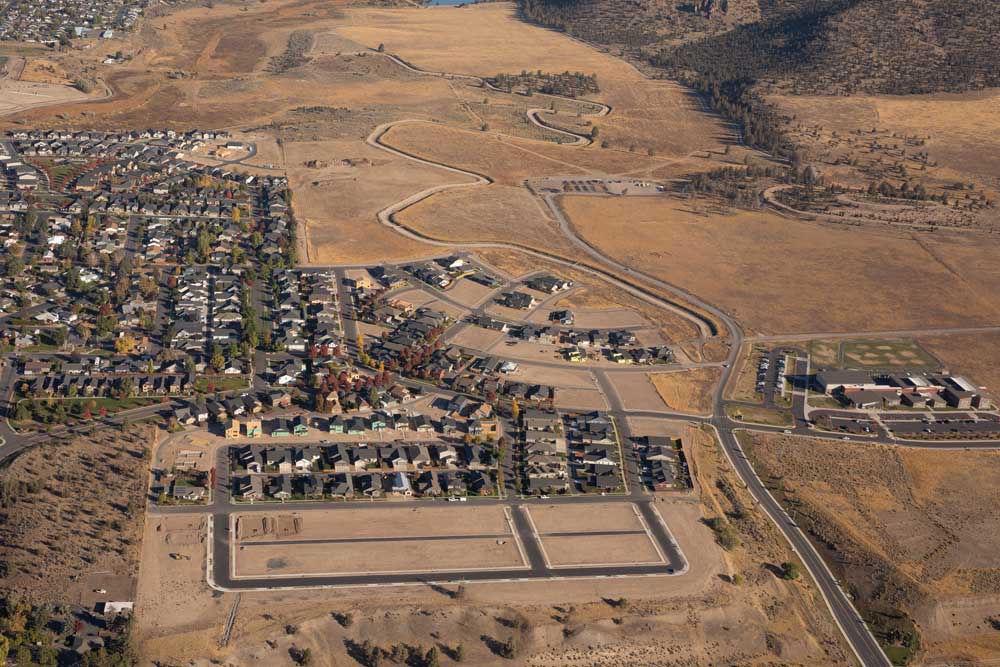Garden fresh in winter: Sign up for a local produce farm share or delivery service
Published 5:15 am Wednesday, January 1, 2025

- An aerial image shows urban growth in Prineville.
It might be a bit of a cliché, but one of the things I love about living in Oregon is the rhythm of the seasons. As I’ve gotten older, patterns have emerged: Trout fishing in the spring as the rivers seem to wake up, berry picking with my parents in the late summer, mushroom hunting in the fall, and of course, skiing in the wintertime.
And while I have taken up gardening in recent years, it did not take long after I moved to Central Oregon for me to realize that the rumors are true. Growing food here is not just a matter of dabbling in your front yard. Especially in the winter, for someone who likes to eat seasonally, it might be better left to the pros.
That’s why this winter, I decided to sign up for a winter farm share, aka community-supported agriculture (CSA).
The CSA share is a direct relationship between the community member and the local farm. When I purchased my CSA, I committed to buying a certain “share” of the farmer’s winter crop every week or every other week for the winter season. For me, the benefits of the Winter CSA are numerous. I’ve been able to receive produce and eggs that are fresh, local, sustainably produced, and affordable. I also love my CSA because it is convenient (delivered to my door) and it has encouraged me to try new foods and recipes that I wouldn’t have otherwise. In recent weeks, I’ve tried my hand at butternut squash soup, cauliflower pancakes, and found ways to implement microgreens and salad turnips into any meal that I can. My favorite food I have received, though, might actually be the Newton Pippen apples from The Farmer in Odell, near Hood River. Crisp and tart, a great apple is hard to beat.
And while my CSA has been a source of joy and nourishment for me, community support is vital for many local farms. The challenges of farming are pretty well-known at this point, but as a staff attorney at Central Oregon LandWatch, it is something I contemplate often. Farmland conversion is rampant — within the last five years, Oregon has lost 660,000 acres of farmland despite land use laws designed to restrict development unrelated to agriculture on land zoned for farming.
What’s more, access to land is daunting, water for irrigation is becoming increasingly scarce, and another record-setting summer of wildfire hit Oregon’s farm and ranch land particularly hard. Community-supported agriculture is a part of the solution to these problems. For a lot of farmers and ranchers in Central Oregon, the consistent and often up-front support offered through a CSA program is crucial, as is the ability to sell their products directly to consumers, without third-party distributors or grocery stores.
Choosing a CSA can be difficult, but only because there are so many great Central Oregon farms to choose from. Personally, I have loved my subscription with Agricultural Connections Cooperative — a farmer, chef and community-owned cooperative and wholesale marketplace with food offerings from a variety of regional producers. Through Agricultural Connections, I can have carrots and cabbage from our friends at Boundless Farmstead in Alfalfa, purple daikon from Mahonia Gardens in Sisters, and squash and potatoes from Casad Family Farms in Madras — all in the same box. I also recommend checking out the High Desert Food & Farm Alliance for other information about how to support a healthy and thriving food and farm network in Central Oregon.
Finally, I’d be remiss if I didn’t mention Bend’s only indoor farmers market, Central Oregon Locavore, where you can find fresh, locally grown food in the heart of the city.
No matter which CSA you choose, it’s a great way to keep eating seasonally this winter while also providing local farmers with the resources needed to sustain our region’s food system.








